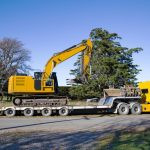So today we are looking at the cost of plastering a wall and this time we are going to make mortar to about 1 cubic meter volume. At the end of this article, you are going to understand how many bags of cement required to cement 1 cubic meter of mortar and other details. So if you have been asking what is the cost to plaster 1 square meter wall in Nigeria, this is a must see for you!
As you know, Guardian Constructors is never interested in mystifying our audience, we make it easy for you to understand what we do here so we use normal site language to achieve this purpose.
Before we dive into the program proper, it is important to have knowledge of some basic things pertaining to plastering or rendering.
Note: Plastering is the normal street language, Rendering is the professional term you’ll hear when a team of engineers or quantity surveyors speak on site.
What is Plastering?
In a simple term, plastering is simply the application of cement mortar on walls. These are usually applied on sandcrete walls to provide a protective layer or covering and in most decorative layers or both.
Plastering is usually done during the Finishing stage of a building and can be extended to the septic tanks, fences, over-head tanks, etc.
What does it cost to plaster 1 square meter wall In Nigeria?
Plastering is a very delicate aspect of finishing that requires not only quality materials, experienced hands, etc. It is important to understand the standards when carrying out plastering. This means the cost of plastering in Nigeria varies and would depend largely on the price of each materials that are incorporated into the mix, cost of labor, supervision, etc.!
Materials Needed for Plastering In Nigeria
The most important material required for plastering in Nigeria is the cement. This is usually a Grade 32.5 or 42.5N. Plastering Sand is another material, water and lastly additives (Not compulsory).
Factors that Influence the Cost of Plastering In Nigeria
Because plastering is a very sensitive aspect of building construction, it is important that you get involved with the construction team (Quantity Surveyor, Contractor) so as to have an effective plan after considering factors like:
Plastering Mix Ratio
Here in Nigeria, the most commonly used mixed ratio is 1:3. There are other mix ratios – 1:1, 1:2, 1:4. To put simply, 1:3 simply means 1 part of cement is to be mixed with 3 parts of plastering sand.
This equally means whenever you are to mix a bag of cement (50kg), then there must be 6 head-pan of plastering sand. For larger sites with a lot of workmen, this means you’ll need about 6 head-pan of plastering sand to mix 10 bags of cement.
Plastering Thickness
This is simply how thick the mortar applied on the wall should be. Most architects specify 12mm – 15mm for residential properties. However, for some industrial buildings where thickness greater than 15mm are required, there will be need for wire mesh (Chicken). This must be applied to limit shrinkage cracking from occurring a few months after plastering.
For the estimate we are making, we are going to work with a 15mm thick plastering.
Area to be Plastered
The Architect usually sums the total surface area to be plastered. This usually includes the inner and outer walls unless the client prefers to plaster the inner walls and let the outer walls be for a while based on financial ability at the time of execution.
Well, it must be noted that dressing for time consuming elements like windows, doors, copings, columns, etc. are charged separately.
Part of the Building
Another important matter discussed before deciding cost to plaster 1 square meter wall is the cost for plastering inner and outer walls. This is so because most workmen would never charge the same amount for inner walls on outer walls. They consider the weather condition, etc.
What does it cost to prepare 1 cubic meter of Mortar?
So we agreed to work with 15mm thickness right?
We also know our mix ratio is 1:3 isn’t it?
Now we are going to produce 1 cubic meter of mortar. Let’s find out what it’ll cost to produce 1 cubic meter of concrete.
We need about 9.36 bags of cement
1608.73kg of plastering sand (Mix Mud)
Cost Requirements for 1 Cubic meter of Mortar
Cement – NGN 4200 per 50Kg Bag = NGN39,312
Plastering Sand – 4800 per 1000kg = NGN7,722
Water = NGN1,000
Labor cost (Porter) = NGN 10,800 (1200 per bag)
Labor cost (Workmen) = NGN 13,500
Well, in today’s Nigeria, the total cost = NGN 72,334 Say NGN 72,500 To produce a cubic meter of concrete.
Cost per Square meter of mortar = (0.015 x 72,500) = NGN1,125/M2
Adding 20% for contractors profit + Overhead, we have NGN 1350/M2
Therefore, the cost to plaster Square meter wall in Nigeria is around NGN 1350/M2
Conclusion: Cost to Plaster 1 square meter wall In Nigeria
From what we have done above, it is clear that you’ll need about NGN1350 as a cost to plaster 1 square meter wall In Nigeria and this could change depending on factors such as price of bag of cement, location of site, type of mix ratio, thickness, etc. For the estimate above, we assumed a 15mm thickness was specified by the architects.
Remember to Fill up this survey form



